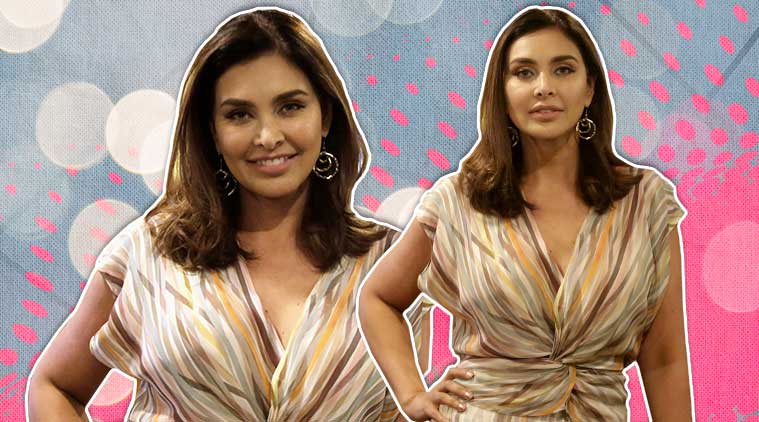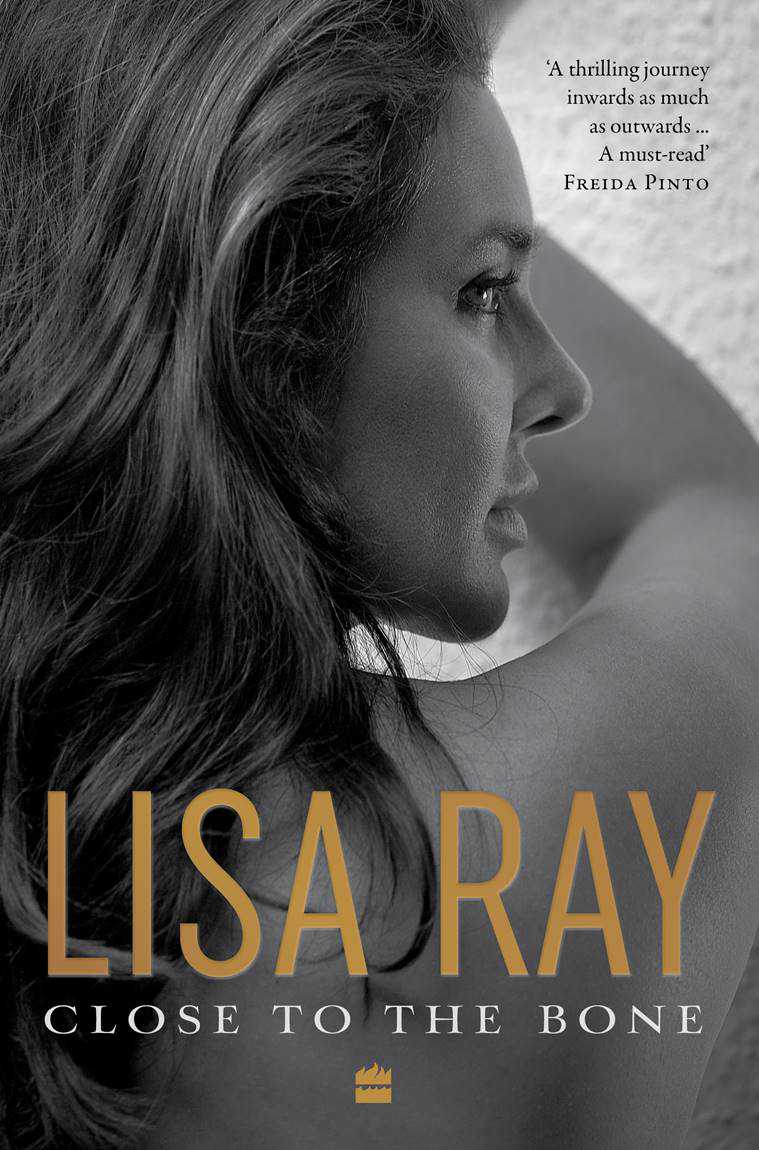
In your debut book Close to the Bone (HarperCollins), you talk about reading Albert Camus and other literary giants from an early age, courtesy your Bengali father. Did you always want to be a writer?
I have been writing my whole life. I have been published in Elle Decor India, Harper’s Bazaar, Vogue India. I have been writing articles with my byline, but, I think, nobody thought I wrote them. The fact that this sort of a treatise is not associated with someone who is a model or an actor is a problem. It’s a strange perception women have had to work against. I have been a passionate reader. I never wanted to do what I did today. That people would know how I ended up here in the first place was partly the reason why I wrote this book.
Your book is part memoir and part documentation of early 1990s Mumbai. How did you decide on what story to tell? And why did it take you this long to write your first book?
Initially, I was commissioned to write about my cancer. The initial draft was sent in 2011, but I wasn’t happy with it. That was not how I wanted my story to be told. It was not the details of it, as it is very honest, but I felt the voice wasn’t right, so I withdrew it and sat on it for five years. Many more things were happening in the background. I relapsed, I got married, I moved across continents and began working on films and (TV series) Top Chef Canada. It was then that I found HarperCollins India to support me, and I found a fantastic literary agent who gets me.

Your writing is quite fluid.
In my mind, I was always a writer. Who you think I am is a projection of you, not who I am. The press back then never asked me if I wanted to be a writer. It’s time I take hold of my own narrative. We women are at the mercy of labels and it’s high time it stopped.
Your ambivalence about your career in Bollywood is even more pronounced in the book.
I never fitted in Bollywood. I’d split myself up in the two worlds I inhabited. I used to dumb myself down. I had to stop using multisyllabic words. I did not get my cup filled in Bollywood. I was uncomfortable with acting, especially in Bollywood. What value did it add to my life? I’m an introvert. I go crazy with so many people around me. The accumulation of money at the expense of everything else wasn’t my goal. I’m independent, I made good money and I have invested it because money gave me the freedom to say no, to go to the mountains if I wanted to for six months or to move to London. Bollywood hasn’t featured very high in my priorities.
But that is what has made you popular.
I have also had a career outside India but everything has always been about modelling. It’s so specific to people’s perceptions. I think two things can coexist. Before the book launch in Mumbai, my friends had all come and I was getting dressed. I thought this is a serious book about my life so I thought I should wear a Khadi sari and no make-up. It was not me but I wanted to be taken seriously. However, my friends rallied around me and said, ‘Don’t do that to yourself. Why should you undermine that part of yourself? You are both things.’ I know that and I am not looking for validation from the world. I know I have given it my all and have cut a vein for it. I stand behind my efforts and know I will be a fantastic author. But I am also in the glamour business, so, why can’t the two coexist?.
Your journey from Kasoor (2001), your days as a successful model, to your latest appearance in the web series Four More Shots Please! — what has changed?
Kasoor was okay, as I got along well with (director) Vikram (Bhatt). But yeah, everything was different back then. We did not have vanity vans. We had a dialogue writer scribbling in the corner and I would cry and ask him to send me my dialogues as I had to mug them up since my Hindi wasn’t strong enough. So many things have changed. Today, I have a manager. Back then, I had to do it all on my own. And, as for fashion, there wasn’t a PR machinery and no red-carpet culture like today, which has been taken over by Bollywood. Then, people like Mehr Jesia and I, we were all unique and different individuals. Four More Shots Please! was an interesting project, one where I got to work with a kickass bunch of women.
You are quite vocal about women’s issues.
I have always been a champion of women. A lot needs to be done but I’m very encouraged because I have spent a long time outside India. I find Indian women to be a dynamic, strong, visionary tribe and slowly we are seeing their stories more. We see this change in cinema and related avenues as well.